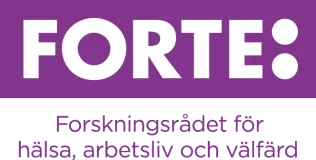Project
Algorithmic management at work - ALGOSH
Algorithmic management is changing work life in many ways. The use of algorithms affects individual work tasks as well as the organization and monitoring of work. However, there is limited data and knowledge on the subject at the moment. Our project is part of the ALGOSH research programme, which aims to rise to the current societal challenge of algorithmic management. We produce information on how algorithmic management affects work and employees in workplaces.

Objectives
- We aim to enhance understanding of the impact that algorithmic management has on the occupational safety and health and overall well-being at work.
- We create strategies to mitigate risks associated with algorithmic management.
- We develop assessment tools and provide advice for strain related to algorithmic management.
- Experts from the Finnish Institute of Occupational Health focus specifically on cognitive, physical and psychosocial risks and how they manifest in daily work.
Data and methods
The Finnish Institute of Occupational Health’s datasets will be collected during spring 2024 from organizations operating in Finland that utilise algorithms and artificial intelligence applications for management. The data comprises surveys, interviews and work observation.
Algorithmic management applications encompass a wide range of tools used, for instance, in work planning, organization, assessment, monitoring, compensation and providing feedback.
Results and impact
We dig into challenges emerging from the increasingly widespread use of algorithmic management in conventional workplaces.
- The research will produce valuable information about the wider impact that algorithmic management has on the occupational safety and health as well as overall well-being at work.
- The results can be used as a basis for making evidence-based decisions in a continuously developing operational environment.
- We will develop an easy-to-use checklist that labour inspectors and occupational safety and health experts can use to assess the physical, cognitive and psychosocial risks and strain related to algorithmic management.
The checklist will also consider the potential positive impacts of algorithmic management on workplace safety, health, and employee well-being.
Our experts

Virpi Kalakoski
Email
virpi.kalakoski [at] ttl.fi
Phone
+358 30 474 2242
Research team
Heidi Lahti, researcher
Partners
- Karolinska Institutet, Stockholm, Sweden
- ALGOSH research consortium




